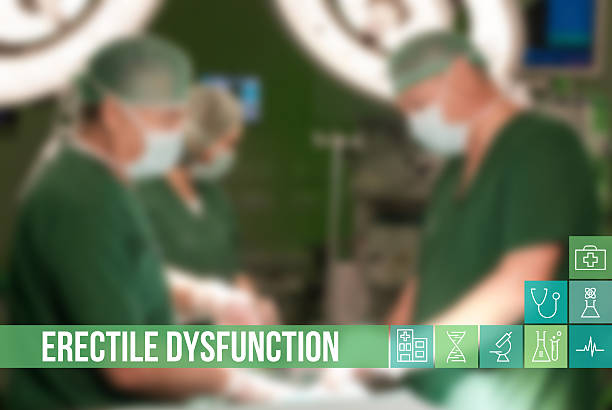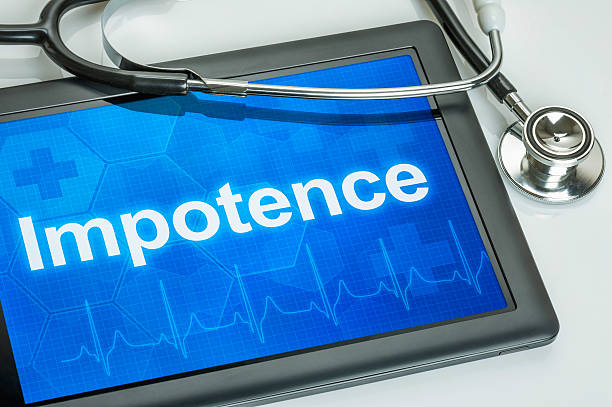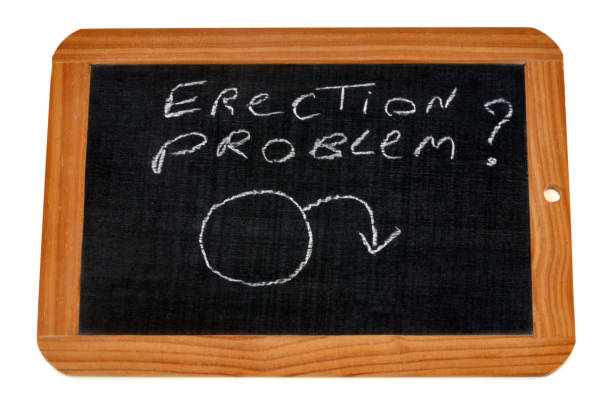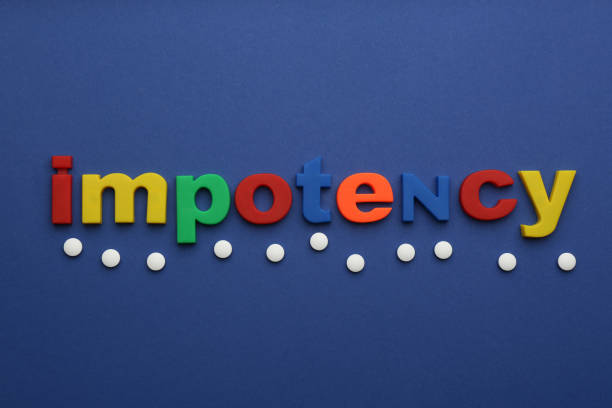Introduction
Erectile dysfunction (ED) can be tough to talk about, but it’s important to face it head-on. Many men ignore the first warning signs, thinking they will go away on their own. In reality, spotting these signs early can make a big difference. Acting early gives you more treatment options and can help prevent the problem from getting worse. Being proactive not only helps you get the right care sooner—it can also boost your confidence and improve your quality of life.
In this post, you’ll discover the common early symptoms, why addressing them quickly matters, and the steps you can take to get back on track.
What Is Erectile Dysfunction?
Erectile dysfunction, or ED, means having trouble getting or keeping an erection firm enough for sex. It’s a common condition that can happen at any age, though it becomes more likely as men get older. Studies show that up to one in ten men will experience some sign of ED in their lifetime. The causes can vary. Erectile Dysfunction can be physical, such as poor blood flow, hormone changes, or side effects from medication. It can also be emotional, such as stress, anxiety, or relationship problems. In many cases, it’s a mix of both physical and emotional factors.
Catching ED Early Matters
Recognizing early signs gives you control over your health and your sex life. The sooner you address ED, the better your results can be. Treating Erectile Dysfunction early can:
- Improve chances of success with treatment – Acting fast gives you more options and a higher chance of restoring normal function.
- Reveal hidden health issues—like heart or blood vessel problems – Erectile Dysfunction is sometimes linked to conditions that affect blood flow, which may need medical attention.
- Reduce anxiety or stress caused by ED – Getting answers and a plan can ease worry and boost your confidence.
According to the Mayo Clinic, Erectile Dysfunction can sometimes be a red flag for heart health, making early detection even more important.

Early Signs of Erectile Dysfunction
Here are key early signs of Erectile Dysfunction you shouldn’t ignore. They may start small but can become more noticeable over time. Paying attention to these changes can help you get the right care sooner. Keep reading, and talk to your doctor if you notice any of these symptoms in yourself or your partner. Early action can make treatment easier and improve your overall health.
1. Intermittent Difficulty Getting an Erection
One time struggling isn’t a big deal—it happens to most men and can be caused by stress, fatigue, or even too much alcohol. But if it starts to happen more often than you expect, it could be an early sign of Erectile Dysfunction. Pay attention if you notice any of these changes:
- Erection isn’t as firm as before – You may feel less hardness or lose firmness sooner than in the past.
- Takes longer to get erect – Sexual arousal may not lead to an erection as quickly as it used to.
- Not rigid enough for intercourse – The erection may not be strong enough to complete sexual activity.
2. Decreased Morning Erections
Morning erections are a natural sign of good blood flow, healthy hormones, and proper nerve function. Most men have them several times a week, often without noticing. A drop in how often they happen may be an early signal of a physical cause for ED, such as reduced circulation, hormonal changes, or nerve problems. Tracking these changes can help you and your doctor find the underlying issue sooner.
3. Reduced Trend in Sexual Desire
Erectile Dysfunction isn’t just about trouble with an erection. Sometimes a drop in sexual interest—or libido—happens at the same time. If sex isn’t on your mind as often as it used to be, don’t dismiss it as simply aging or a busy schedule. Changes in desire can be linked to stress, fatigue, relationship issues, or shifts in hormone levels, such as low testosterone. In some cases, low libido can also signal underlying health problems that deserve attention. Talking to your doctor can help you find the cause and the right solution.
4. Difficulty Maintaining Erection During Sex
Maybe you get an erection but can’t stay hard all the way through. This “dropping mid-act” is a real symptom to track and can point to physical or emotional causes. It might be linked to reduced blood flow, performance anxiety, or other health issues. Keeping notes can help you and your doctor see patterns and find solutions. Write down details like:
- When does it happen? – Is it only at night, in the morning, or during certain activities?
- Does it happen more often under stress? – Work pressure, relationship tension, or life changes can play a role.
- Does it occur only with certain partners or situations? – This can reveal if it’s more mental or physical.
5. Anxiety or Worry About Performance
Mental stress can lead to physical problems—this is called performance anxiety. It happens when worry about sexual performance creates a mental block, making it harder to get or keep an erection. The more you focus on the fear of not performing well, the more likely it is to happen again. Over time, that worry can become a cycle, interfering with erections even when there’s no medical issue. Performance anxiety can be triggered by past experiences, relationship concerns, or pressure to satisfy a partner. Addressing the stress early can help break the cycle and restore confidence.

Other Related Warning Signs
It’s smart to watch not just for Erectile Dysfunction itself but also for related health clues. These signs can point to issues that affect sexual health and overall well-being:
- Fatigue and low energy – Constant tiredness could be linked to low testosterone, poor nutrition, or sleep problems. Hormone imbalances can reduce stamina and sexual drive.
- Trouble sleeping – Sleep apnea, insomnia, or restless sleep can lower testosterone and reduce erection quality. Quality rest is important for sexual performance.
- Heart-related symptoms – Chest pain, shortness of breath, or high blood pressure can limit blood flow to the penis, making it harder to get or keep an erection.
- Mood changes – Feeling down, stressed, or anxious can reduce sexual interest and performance. Emotional health is closely tied to sexual function.
Why These Matter
ED often ties into bigger health issues like heart disease, diabetes, or mental health. The Cleveland Clinic says Erectile Dysfunction may be among the first signs of cardiovascular trouble. So putting off help might mean missing a chance to protect your heart.
What to Do If You Notice Signs of Erectile Dysfunction
Taking action doesn’t have to be scary. Here’s a simple plan:
- Track your symptoms. Note when, how often, and under what conditions you notice signs.
- Talk to your doctor. Be honest—it helps. A health check can rule out or treat causes.
- Consider lifestyle steps.
- Eat a heart-healthy diet (fruits, veggies, whole grains)
- Get regular exercise
- Quit smoking and limit alcohol
- Get screened for health issues. Your doctor may check for high blood pressure, diabetes, or hormone levels.
- Ask about help options. Treatment can include medicine, talk therapy, or devices. You’re not alone—many effective options exist.
Treatments and Support
Here are some common, trusted approaches to managing early Erectile Dysfunction:
- Prescription medications – such as PDE-5 inhibitors
- Counseling or therapy – especially if stress or anxiety is part of the issue
- Devices – like vacuum erection devices or penile rings
- Lifestyle changes – losing weight, being active, and eating well
- Check hormone levels if low testosterone is suspected
An article from Johns Hopkins explains treatment varies by cause and individual.
Tips for Talking to Your Doctor About Erectile Dysfunction
Opening up can feel tough. Use this friendly checklist:
- Be direct. “I’m having trouble getting or keeping an erection.”
- Bring notes. Your symptom tracker is helpful.
- Ask questions. “What could be causing this?” “What tests will you run?”
- Discuss options. Ask about both medical and non-medical steps.
- Be open to follow-up. Effective treatment may take time and adjustment.

Myths vs. Facts (Make It Clear)
Let’s clear up some common misconceptions:
| Myth | Fact |
|---|---|
| Only older men get ED. | ED can happen at any age. Young men can have health or emotional causes. |
| ED is always psychological. | Many physical issues (like blood flow or hormones) contribute. |
| Viagra is the only treatment. | Treatment varies. Some men talk to a therapist or improve lifestyle instead. |
When to Get Immediate Help
Call your doctor or go to the emergency room if:
- You have chest pain or shortness of breath
- You have an erection lasting more than 4 hours (called priapism)
- You feel sudden or severe pain in the penis
These situations need urgent care.
Conclusion: Don’t Wait—Take the First Step Today
You’ve read the signs. Now your move. Noticing a change in your erections isn’t a weakness—it’s a signal that your body needs attention. The earlier you act, the easier treatment can be.
What can you do right now?
- Start a journal of symptoms
- Schedule a doctor’s visit
- Talk to someone you trust for support
You’re not alone, and help is out there. Did any sign here hit close to home? Share your thoughts or questions below. I’d love to help you learn more. Let’s talk!

